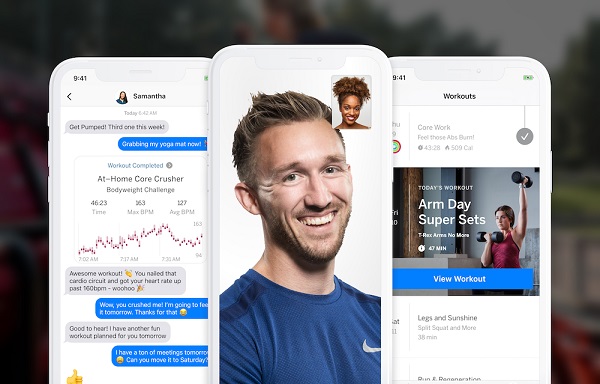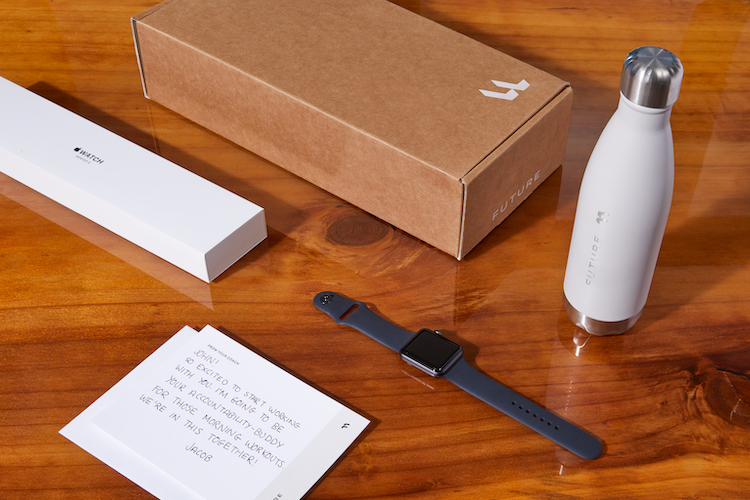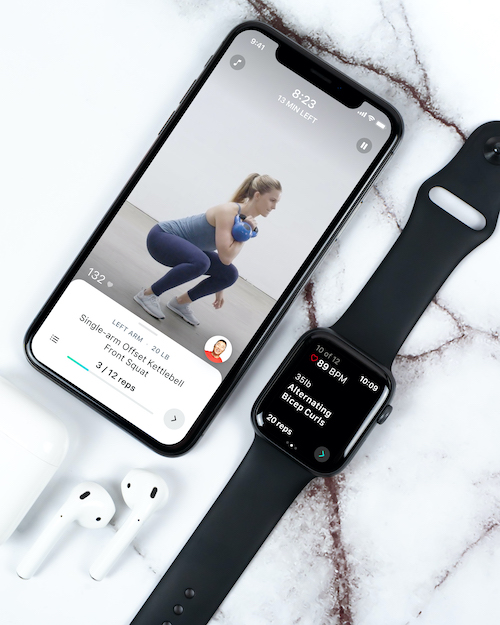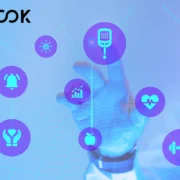Future Training Company Bets You’ll Pay $150/M for App

Before COVID-19, training company Future had a game plan for remote personal fitness instruction. With just an Apple Watch and some texts from a pro, Future claims you can meet your fitness goals.
How is that professional athletes can stay dedicated to maintaining tip-top physical conditions while you and I rotate through fad diets and let stationary bikes become clothing racks?
The question isn’t a trick or a riddle. The answer is obvious: The pros have coaches and trainers who make the big decisions for them and hold them accountable.
The explanation was also obvious to Rishi Mandal and Justin Santamaria, the co-founders of Future, a training service that, for $150 a month, connects clients with bonafide exercise coaches, who help them set goals and then monitor their progress through data gathered via an Apple Watch. By axing the time commitment of sitting in with every client during exercise, Future says its coaches can work with more people and company clients get some of the benefits of personal training without the prohibitive cost.

“We thought: What if we could take everything from coaching that works and provide it to people without having them pay $100 an hour or more for a personal trainer?” Mandal, the CEO, told Athletech News. “We know what the benefits of coaching are. We can have those without having the coach log in on video and instruct you every time you work out.”
Mandal, a Stanford University-trained astrophysicist who transitioned to developing tech products, likes to break down concepts into essentials. “There are three reasons why coaching is fundamentally so helpful,” he said, all three of which can be distilled into an online service.
Firstly, fitness instructors bring expertise. “You don’t have to figure it all out by yourself,” said Mandal. Athletes have their routines planned out for them. They don’t have to divert mental energy into considering what equation of cardio and strength training is best for them and they don’t fall down on their routines in the midst of doubt about their regiments.
Secondly, the coaches provide accountability; the person has to explain to their coach what they have or haven’t done.
Third, coaches provide a personal touch. “People talk about life with their personal trainers,” said Mandal. “They talk about their vacations, ‘I hate my boss,’ stuff like that.”
The four-year-old company seeks to deliver those three aspects digitally.
Mandal said he couldn’t say how many coaches Future employs. He said that most of them have worked in professional or college athletics and have degrees in kinesiology or exercise science.
In their first interactions, clients work with coaches to create a specified exercise plan. Mandal said roughly 20 percent of clients have a “specific goal, to run faster or jump higher.” Most are not preparing for a sport or a marathon. They just want to get in better shape.

Accountability is easy to enable digitally; the Apple Watch delivers real-time data on the client’s exercise activity for the coach to review and, politely, scrutinize.
As per personal connection, clients may never meet their coaches — in the traditional sense of the word — but the coaches text them often and are available for FaceTime chats.
“Your coach may be the first person who texts you in the morning,” said Mandal. “I may see, ‘Hey Rishi, you have a run today.’” It’s not theoretical; Mandal works with a virtual coach. Independent of any exercise talk, he was one of the first people who texted him to express concern about the wildfires near his home in California. A bit of a personal touch helps the client want to engage with the coach and follow their advice.
Although they do not release such numbers, Mandal said user enrollment has tripled since the start of the COVID-19 pandemic. It’s not just a program that requires no in-person contact that people are seeking. They also want reassurance that their fitness needs are being attended to.
“It’s a solution that makes sense in this world of chaos when you are not sure what to do,” he added.
Nick Keppler is a freelance journalist, writer and editor. He enjoys writing the difficult stories, the ones that make him pore over studies, talk about subjects that make people uncomfortable, and explain concepts that have taken years to develop. Nick has written extensively about psychology, healthcare, and public policy for national publications and for those locally- based in Pittsburgh. In addition to Athletech News, Nick has written for The Washington Post, The Daily Beast, Vice, Slate, Reuters, CityLab, Men’s Health, The Gizmodo Media Group, The Financial Times, Mental Floss, The Village Voice and AlterNet. His journalistic heroes include Jon Ronson, Jon Krakauer and Norah Vincent.



